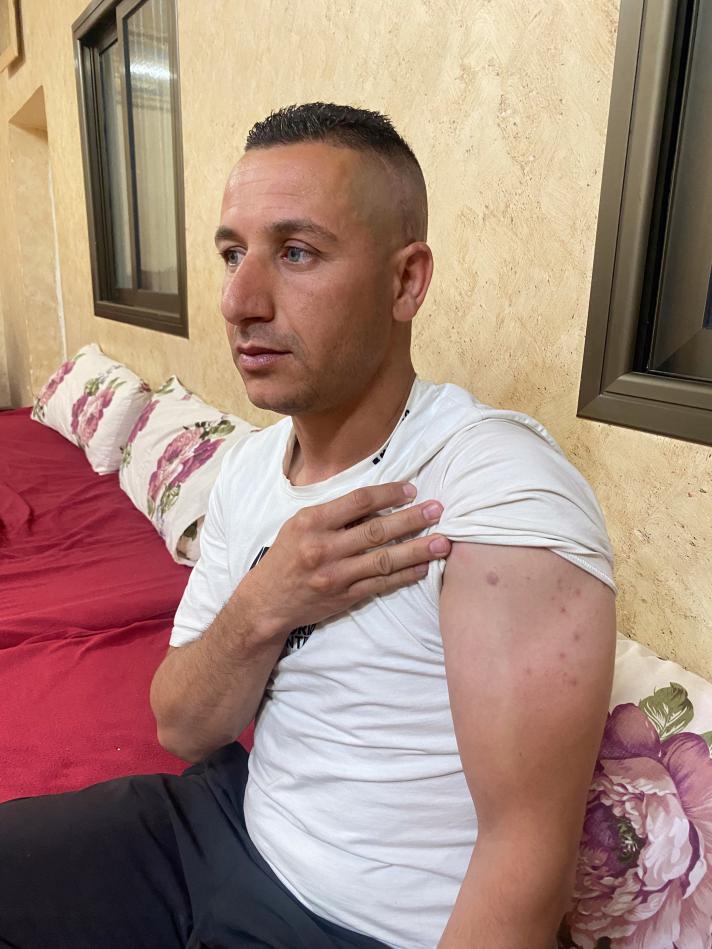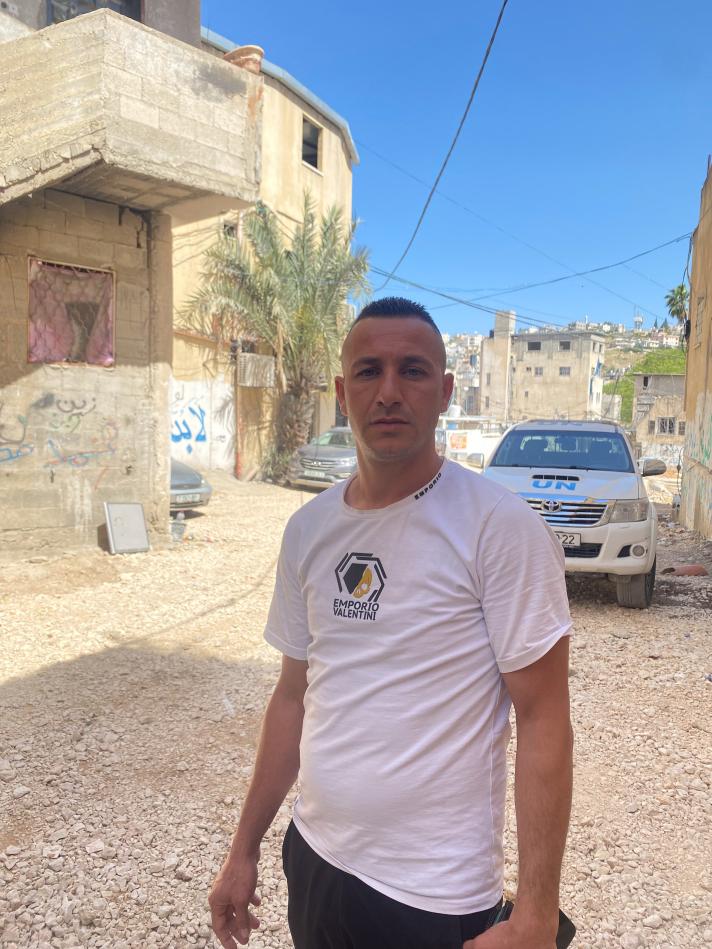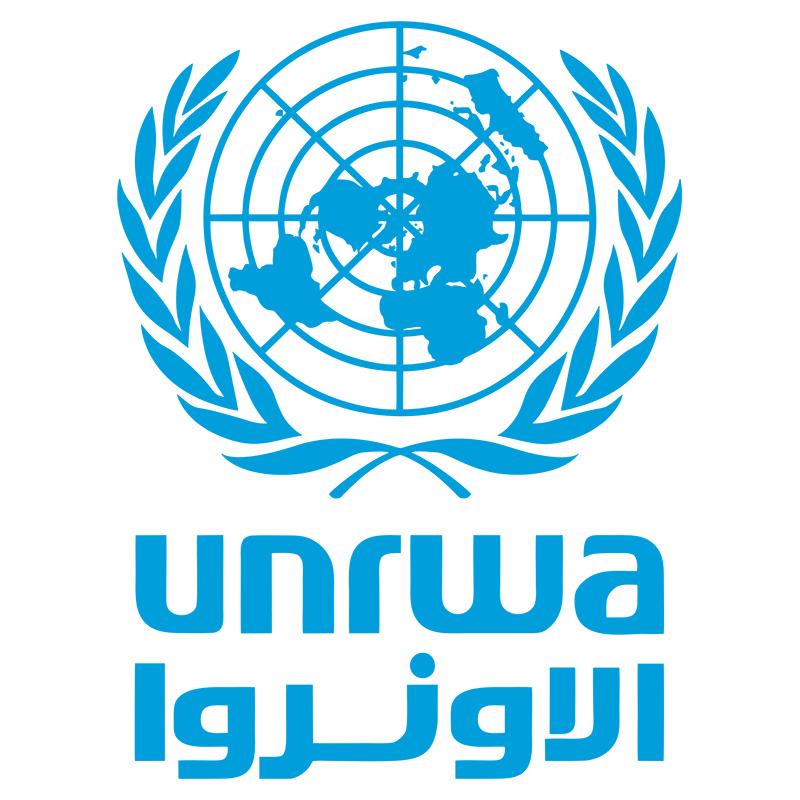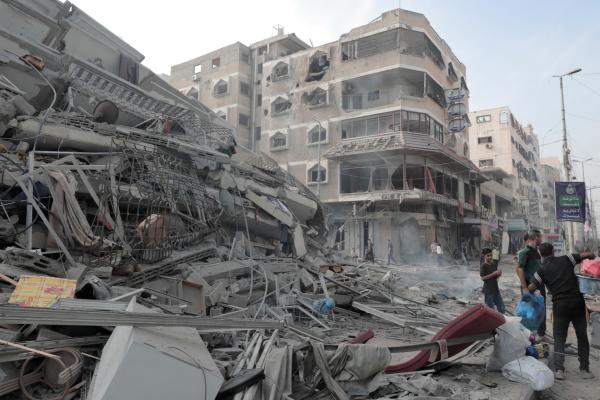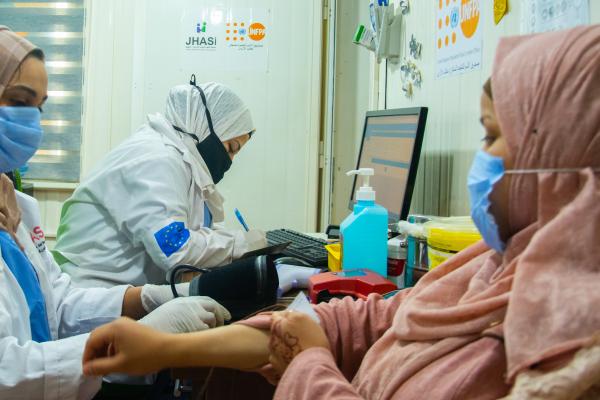Since mid-2023, the West Bank has been subjected to unprecedented violence due to persistent Israeli Security Forces (ISF) incursions.
These operations, employing airstrikes, drones and heavy machinery, caused extensive damage to infrastructure and widespread destruction and led to numerous arrests and killings of Palestinian civilians.
The Nur Shams camp is no exception: many of its residents have been severely affected by losing their source of income, seeing their homes severely damaged or destroyed and experiencing critical injuries, or even lost their life.
Eyad Abu Al-Rab is an example of one of the many civilians injured by live ammunition in this Palestinian refugee community. His recovery journey reflects the resilience of Nur Shams, a name that means "sunlight" in Arabic.
In September 2023, he was shot twice while observing an ongoing ISF operation from his rooftop. Due to the intensity of the attack, ambulances had no access to the area and his father and volunteer medics could not immediately transport him to a hospital. Instead, they stabilised him inside his home and carried him through the narrow alleyways of the camp to a safer location for the hospital transfer.
Eyad remained hospitalised for a month. Before the attack, he was an energetic truck driver and the primary breadwinner of his family, but his injury left him unable to work and his whole family fell into psychological and financial distress.
In addition to the injuries, the family had to deal with another blow. During the military operation, the ISF shattered their home’s doors and windows while Eyad's wife, children, and father were inside, causing post-traumatic stress and fear.
With EU support, UNRWA stepped in to assist Eyad's family providing psychological support and financial aid for home repairs and to address other essential needs.
The psychological support provided to Eyad and his family helped them manage stress and fear. UNRWA also involved their relatives and the local community in this support. Thanks to the financial aid, the family was able to purchase what they needed the most like clothes and nappies, repair their home, and alleviate their economic strain, restoring their dignity and independence.
Eyad's wife drew significant strength from the psychological and community support she received.
The children too were able to thrive again in a rehabilitated home that offered a secure environment to play and get an education, alleviating the strain caused by their father's injury and restoring a sense of normalcy. Even Eyad's father benefited from the newfound stability at home.
Eyad’s story highlights the positive impact of comprehensive EU-funded humanitarian interventions against the increasing number and intensity of Israeli military operations in the West Bank.
Addressing psychological, social, and economic needs altogether is an efficient way to concretely support individuals and communities in their recovery and rebuilding efforts.
Since 2011, the EU allocated over €119 million in humanitarian funding to UNRWA for its emergency response in the West Bank and Gaza.



